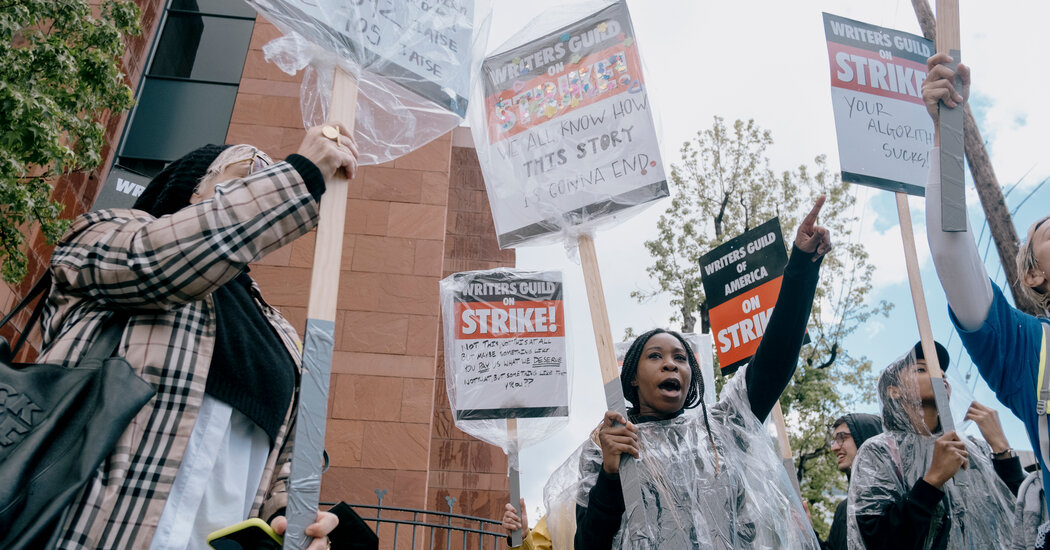Over the past week, media companies exuded an air of business as usual. On Thursday, HBO hosted a red carpet premiere for a documentary, while the Fox broadcast network announced a survivalist reality show called “Stars on Mars,” hosted by William Shatner.
“3…2…1…GET OFF!” read the network’s promotional materials.
With the exception of late night shows, which immediately went dark, Bakish assured Wall Street, “consumers really won’t notice for a while.” Networks and streaming services have a large amount of stored content. Reality shows, news programs and some scripted series made by foreign companies are not affected by the strike. Most of the movies coming out this year are well past the writing stage.
Shares rose Friday for every company involved in the botched contract talks; investors usually like it when costs fall, which happens when production slows down, such as during a strike. If the strike continues into July, analysts pointed out, studios could end expensive deals with writers under “force majeure” clauses of contracts.
“The sad news for writers is that by calling a strike, they are actually helping the streaming giants and their parent companies,” Luke Landis, a media and internet analyst at SBV MoffettNathanson, wrote in a report Wednesday.
However, writers managed to give the studios a hard time in the first week. Apple TV+ had to postpone the premiere of ‘Still’ about Michael J. Fox and his struggle with Parkinson’s disease because Mr. Fox refused to cross a picket line. In Los Angeles, writers picked up the Apple TV+ set for “Loot,” starring Maya Rudolph, which stopped shooting. In New York, similar actions disrupted the production of shows like “Billions,” the Showtime drama. Other affected programs included “Stranger Things” on Netflix, “Hacks” on HBO Max and the broadcast of the MTV Movie & TV Awards on Sunday. forward without a host after Drew Barrymore pulled out, citing the strike.

